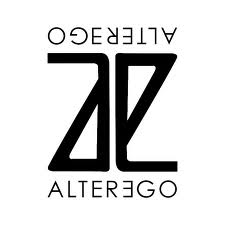
An individual is subjected to a sort of incompleteness but an organization can enjoy a level of completeness because of its nature. Limitations of individual can easily be identified. On the other hand, Limitations of an organization can easily be reduced to a satisfactory level. But organization holds the quality of individual, mostly that of its founders. When organization grows to a larger extent, expert executives are recruited, the values it holds may experience a sort of re-engineering. New thoughts coming from different perspectives naturally have an impact on existing culture of the organization. New thoughts also go through a moderation process of existing culture. It’s a two way compromise.
An authoritative manager wants his employees to work according to his style, his predefined policies. To maintain organizational decorum, to get the work done timely and effectively, may be, it’s necessary. But when we think about a smart organization, continuous development of the organization we must have a comprehensive reading of different issues of that organization. For example, is there any limitation from any sphere of organization that killing her silently? Is there any weakness that continuously weakening other parts of the organization? If there is really anything like that, founders, managers should have a rethinking.
“Throughout my life, I’ve always needed somebody as a counterbalance, to compensate for my weaknesses, and work off my strengths.”
Konosuki Matsushita, founder of Matsushita Electric Company was expert in Marketing and general management. Being concerned about his limitation that was killing his organization he recruited Arataro Takahashi, the man with exceptional skills in Finance and Accounting. Takahashi was recruited to supplement the limited skills of Matsushita, to add different dimensions to think about the phenomena of the company. Takahashi was Matsushita’s alter ego. People from different perspectives develop different ego and attitude towards the facts. Matsushita was certainly aware of it. He recognized the importance of adding opinion from a finance expert in the decision making. He was right and “together they pioneered the world’s first profit center.”
Think about Richard Branson, founder of Virgin group of companies. He says “Throughout my life, I’ve always needed somebody as a counterbalance, to compensate for my weaknesses, and work off my strengths.” It’s the wisdom a real entrepreneur should have. Branson was very clear about his strengths and weaknesses and he was confident enough to deal with them. It worked and he successfully dealt with these issues. Similar things happened to Steve Jobs and Steve Wozniak in Apple. Jobs was very extrovert, aggressive, authoritative, aesthetically sound man. On the other hand, Wozniack was introvert, programming geek and very submissive guy. Characteristically they are different but their composition really hits, “putted a ding in the world”. It’s the charisma of alter ego.
For young entrepreneurs it can be a great learning. Mastering the art of compromise, holding the diversity of thought, tolerating the peculiarity, honoring the alter ego etc can help an entrepreneur build a great organization.Happy Organizing, Happy building!!
